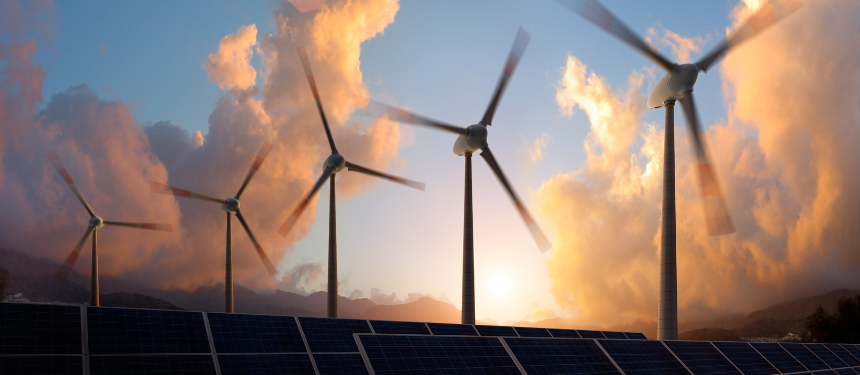Risk Outlook 2023: Focus on Energy Crisis

The 2021-22 global energy crisis has seen many countries facing shortages of oil, gas and energy, with prices reaching their highest levels in decades.
The crisis was caused by a variety of factors, including a rapid post-pandemic economic rebound which outpaced production, resulting in a significant supply-demand imbalance, which was then escalated by Russia's invasion of Ukraine in February 2022.
The situation is more acute in Europe owing to its historical reliance on Russian energy. Almost half of the gas consumed in Central and Eastern Europe in 2021 was imported from Russia with countries such as Moldova and Serbia nearly 100% reliant on Russia. Since February, many European nations have committed to curtailing Russian gas supplies as a retaliatory act for its invasion and as part of sanctions packages. In response, Russia has limited and even turned off its export pipelines. Nord Stream 1, Russia's largest gas pipeline to Europe, has been closed indefinitely since September which has led to an unprecedented and urgent need for diversification.
What does the energy crisis mean for consumers and business around the world?
Sharp increases in wholesale energy prices have drastically increased consumer prices for businesses and households moving into winter. Rising energy prices have led to higher production costs and consequently, retail prices have gone up too. As such, the soaring cost of energy is contributing to inflation and rising costs of living.
Although the crisis is directly impacting Europe, it remains a global issue. The impact is critical in poorer oil-producing countries such as Nigeria, Angola or South Sudan, which suffer from the increased costs of importing the petroleum products they rely on. Further, as European countries entered the competition over liquefied natural gas (LNG) with Asian consumers, the global LNG market has tightened and prices will likely remain elevated for at least the next 18 months. The costs of living also rose globally, largely due to the high commodity prices, as witnessed in Lebanon or Caribbean nations. This will likely translate into increased geopolitical and security risks in 2023, with growing civil unrest and potential border disputes over oil and gas deposits. Governments worldwide will be put under heightened pressure to mediate the rising costs of energy and living.

What needs to happen now?
There is no easy substitutes for Russian gas, and European countries may need to resort to short-term solutions which are costly or counteract green energy objectives. In the near term, countries will need to diversify supply and secure gas from alternative suppliers, such as Algeria, Norway and Azerbaijan, if they want to avoid rationing in the later months. Russia's invasion underscored decades' worth of energy overreliance on countries that can weaponise energy supplies. Governments and businesses will need to reduce their gas-reliant energy consumption by finding alternatives to gas to generate electricity. European countries have already sought to resume or expand the use of nuclear and coal-fired plants. Finally, countries will have to curb the demand for both gas and electricity, especially in the winter months. The EU set a goal of a 15% cut on gas consumption by April 2023, and so far this year, members have consumed about 10% less gas compared to last year.
The energy crisis has called into question the viability of decades of infrastructure and investment decisions and has profoundly re-orientated international energy trade towards new objectives. This energy shortage is expected to persist throughout 2023, and long-term solutions are essential to resolve the crisis.
What needs to happen long-term?
Reassess energy policies and priorities
It is essential for both governments and businesses to establish clear, flexible, long-term plans, ensuring self-reliance and adequate preparation for potential future energy shocks. Governments may need to install or reinforce energy price caps to protect consumers. They could subsequently choose to nationalise energy companies that cannot absorb the higher energy prices.
Maximise domestic production
Countries such as Hungary, Poland and Romania have already taken steps to increase their production of biomethane, hydrogen and biogas. Domestically produced biogas and biomethane can reduce CO2 emissions, enhance market resilience and significantly ease reliance on fossil fuel imports. They can also be blended across a wider market using existing gas infrastructure and heating systems.
Develop renewable energy
Countries need to accelerate the energy transition toward renewable energy, such as solar, hydropower, wind, geothermal and biomass. Unlike hydrocarbons, these renewable sources do not emit greenhouse gases and can generally be produced domestically, improving energy independence. Governments need to support efforts to reduce the use of gas in the industry through modernisation and renewable-based energy sources.
Invest in infrastructure
The crisis has highlighted the importance of investing in robust gas and power network infrastructure to better integrate regional markets. Governments need to develop their strategic stockpile capacities through long-duration energy storage (LDES) to retain their renewable energy production. In addition, countries need to invest in new LNG infrastructures that will help provide market access for landlocked countries lacking import terminals. In fact, European countries have already started investing in LNG import capabilities, notably in floating storage regasification units, which have shorter lead times and can be chartered for shorter periods.
Increase regional cooperation
In order to successfully and thoroughly halt dependence on Russian gas, European countries will need to enhance cooperation between the EU and the member countries of the Energy Community and collaboration across sectors to bring new energy technologies to the market.
What should businesses do to navigate the energy crisis?
Although there are numerous long and short-term solutions to diversifying, protecting and enhancing energy infrastructure, there are no quick fixes. The global energy crisis is a multifaceted problem which is likely to have long-term implications for all governments, businesses and consumers for years to come. Businesses will need to design operational plans that will allow them to manage energy disruption and bear the price increase. As energy weaponisation becomes more frequent, businesses will need to adapt and be resilient in order to find affordable energy in 2023.
Companies should evaluate their vulnerability and find solutions to handle energy disruptions. Businesses may need to invest in backup power provisions, such as electric generator, as well as renewables. In some case, companies might have to contemplate relocating their operations to areas less affected by energy disruption.




